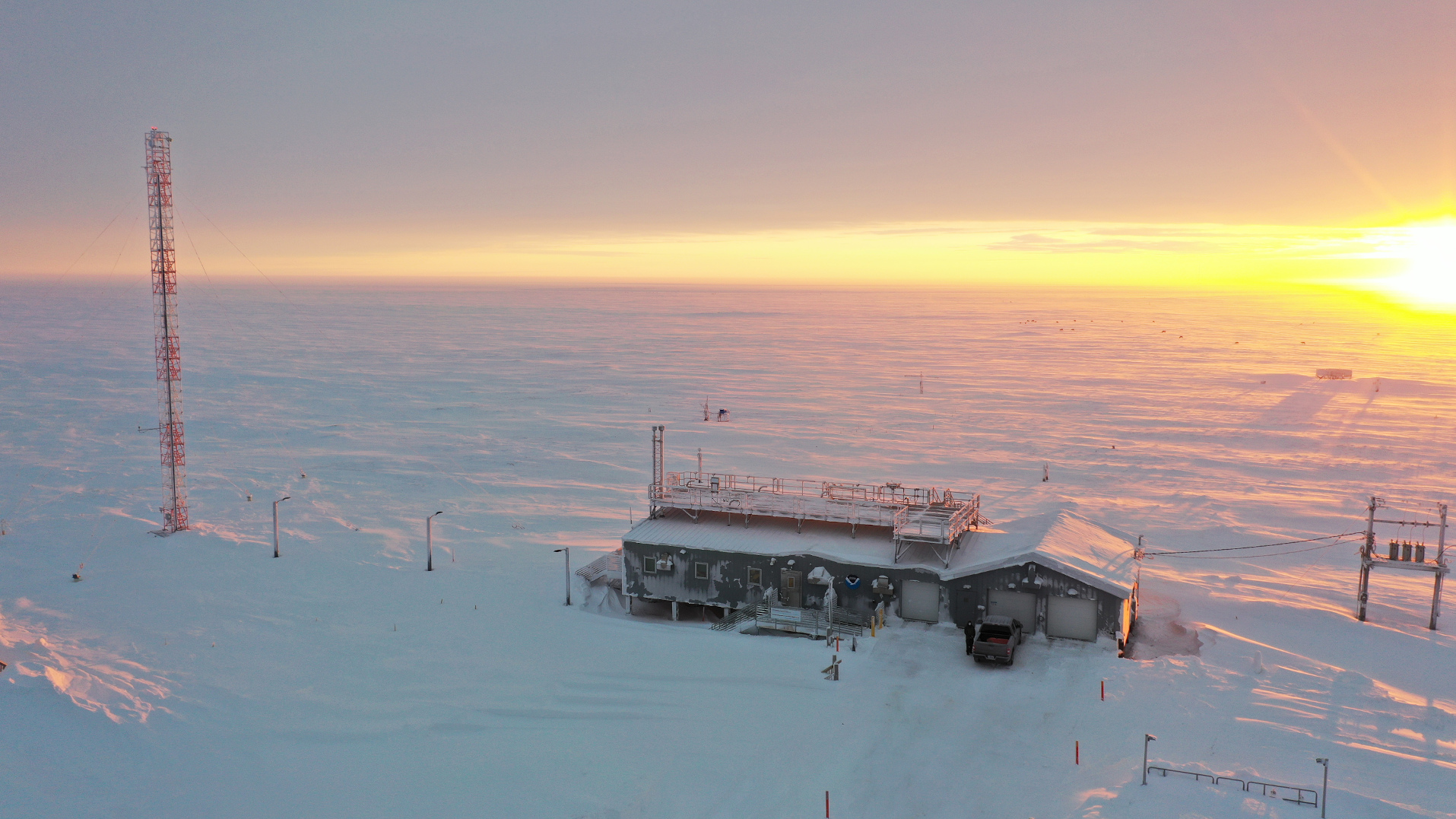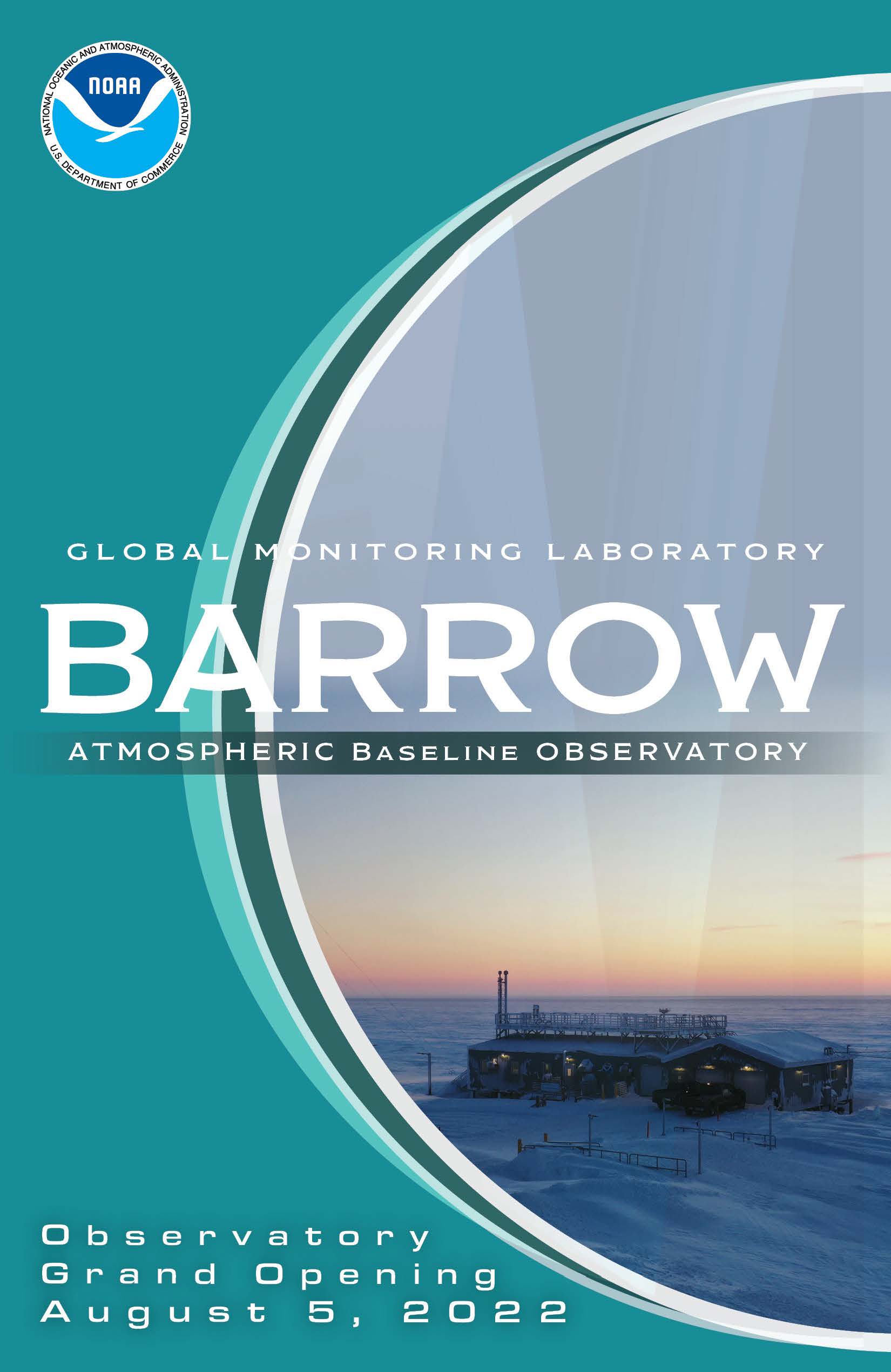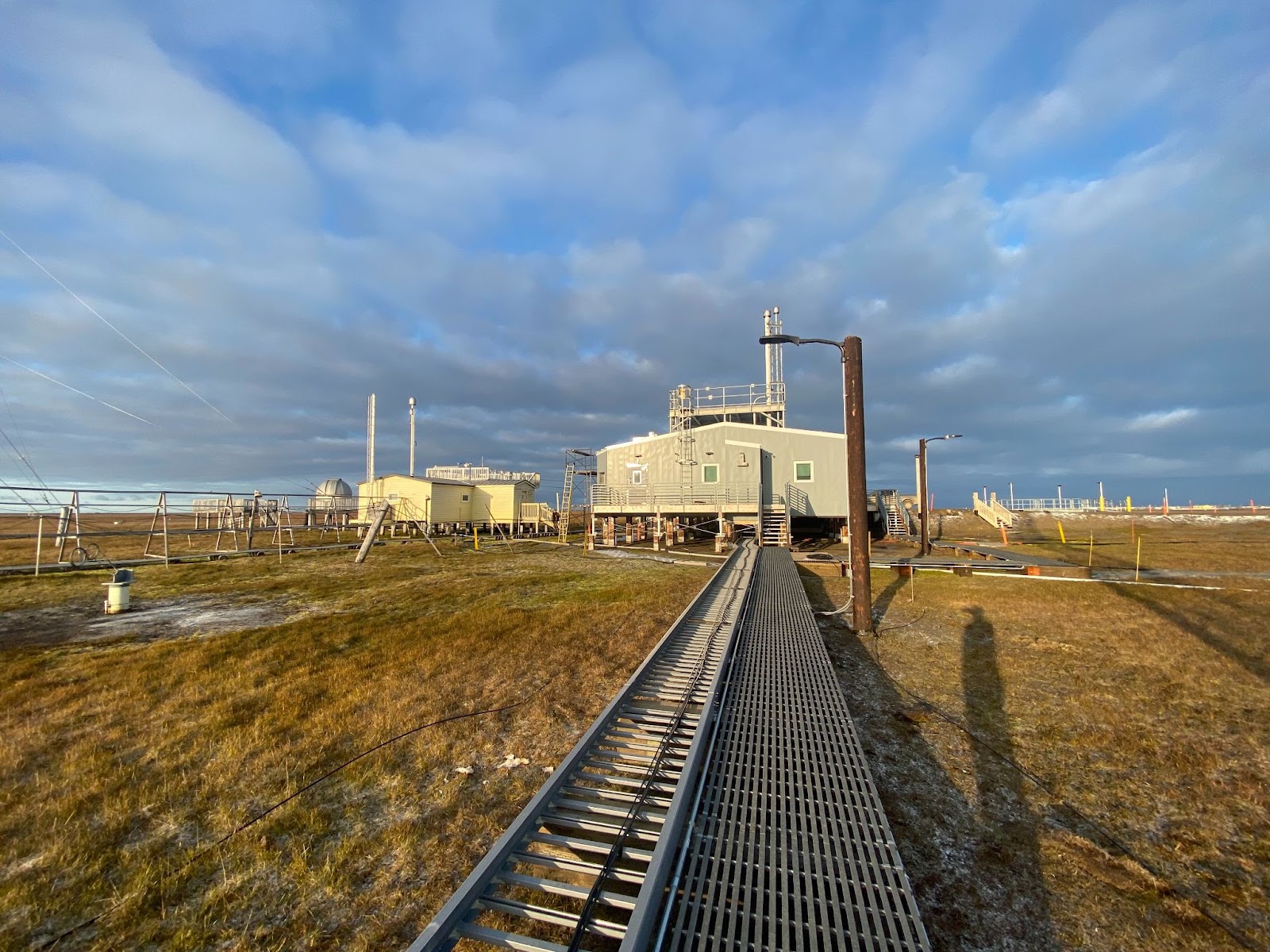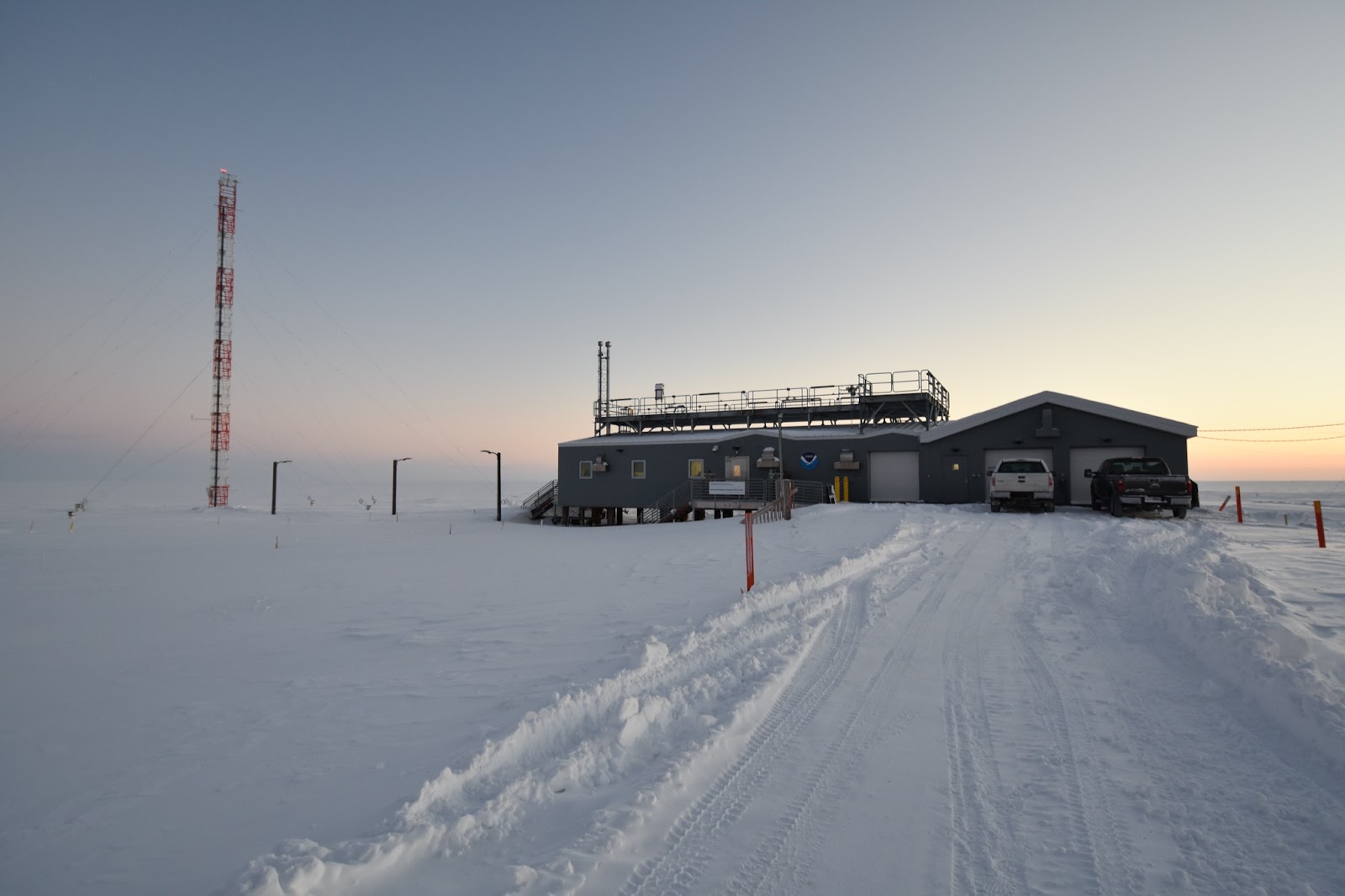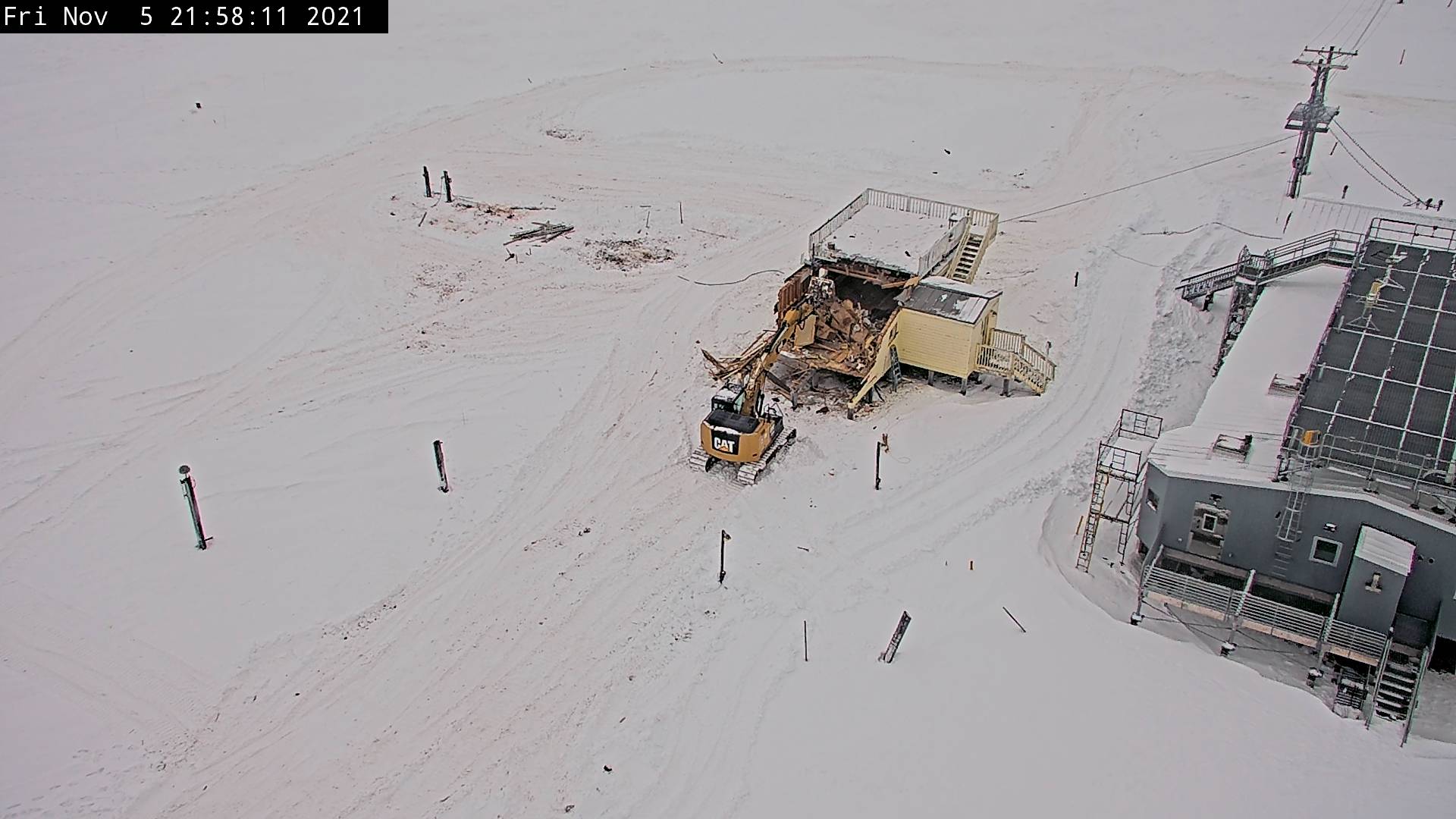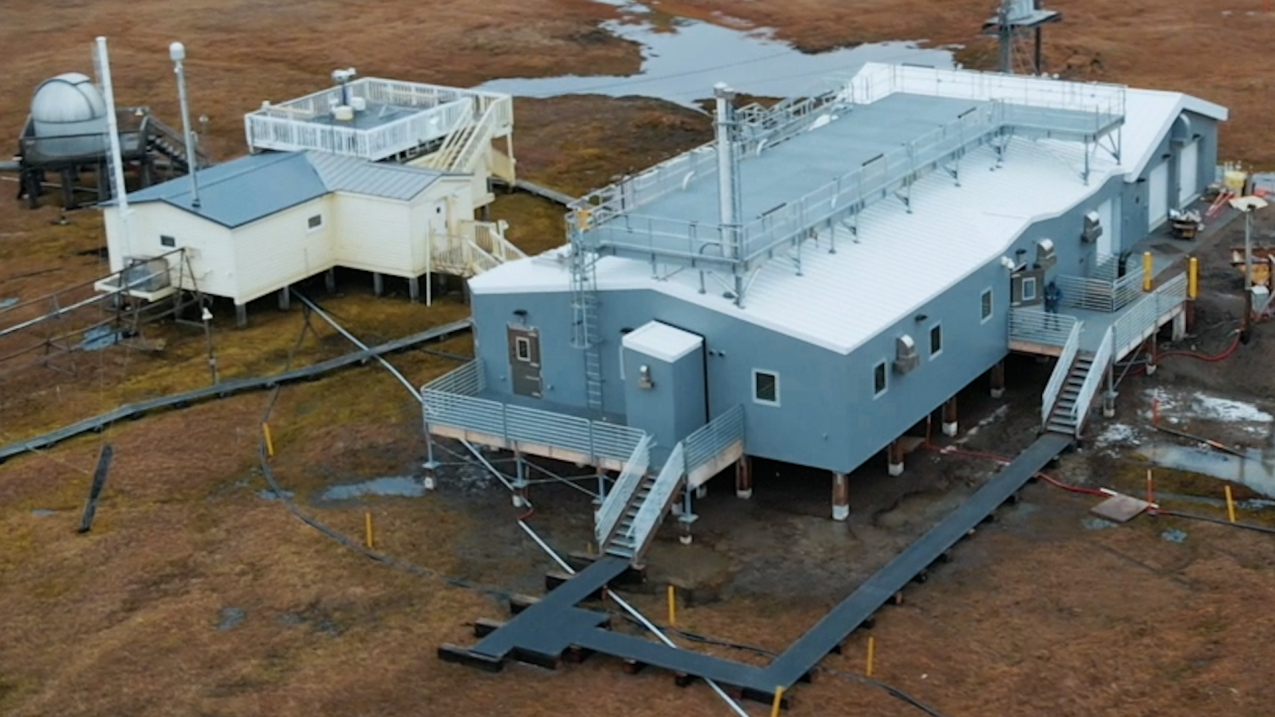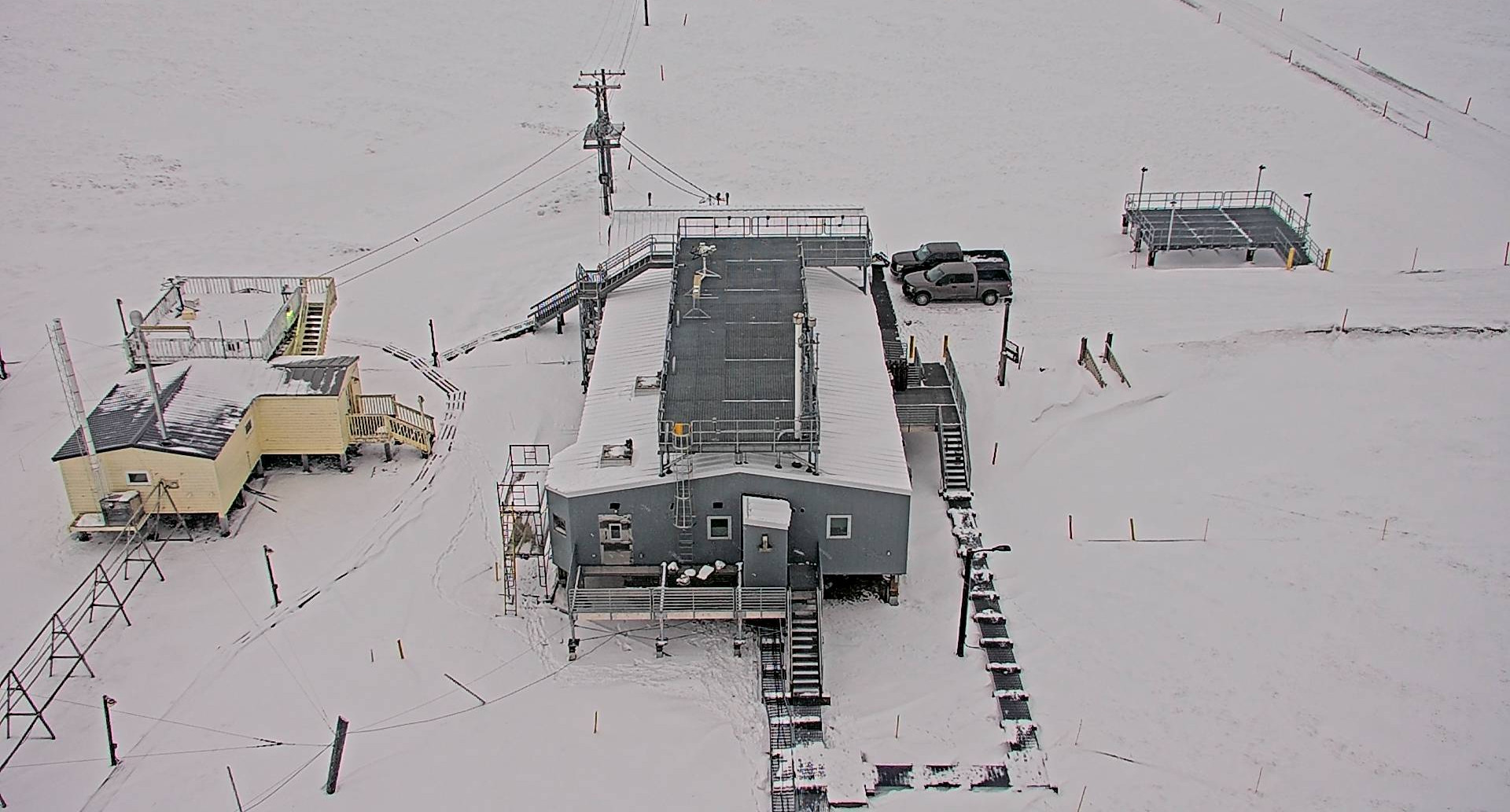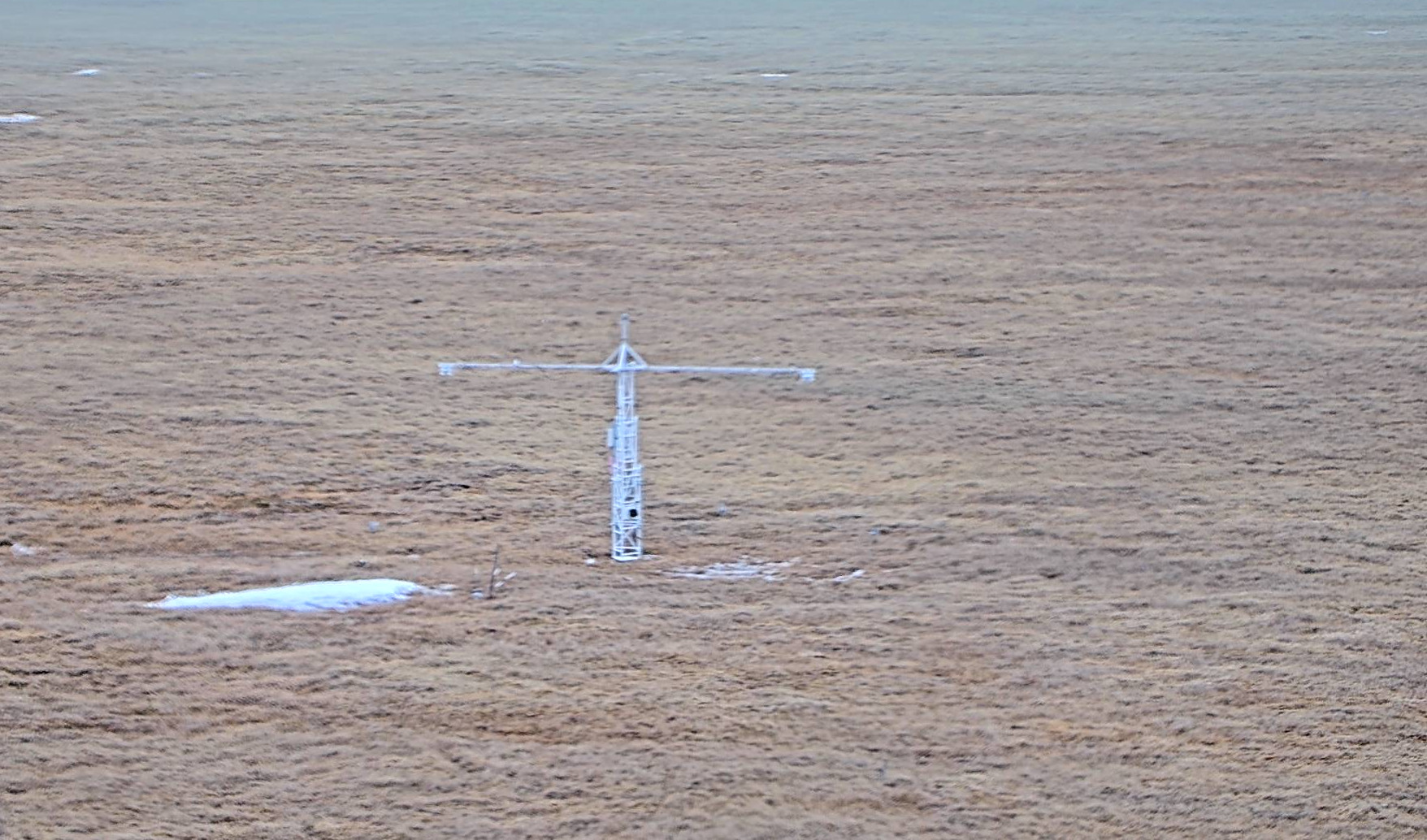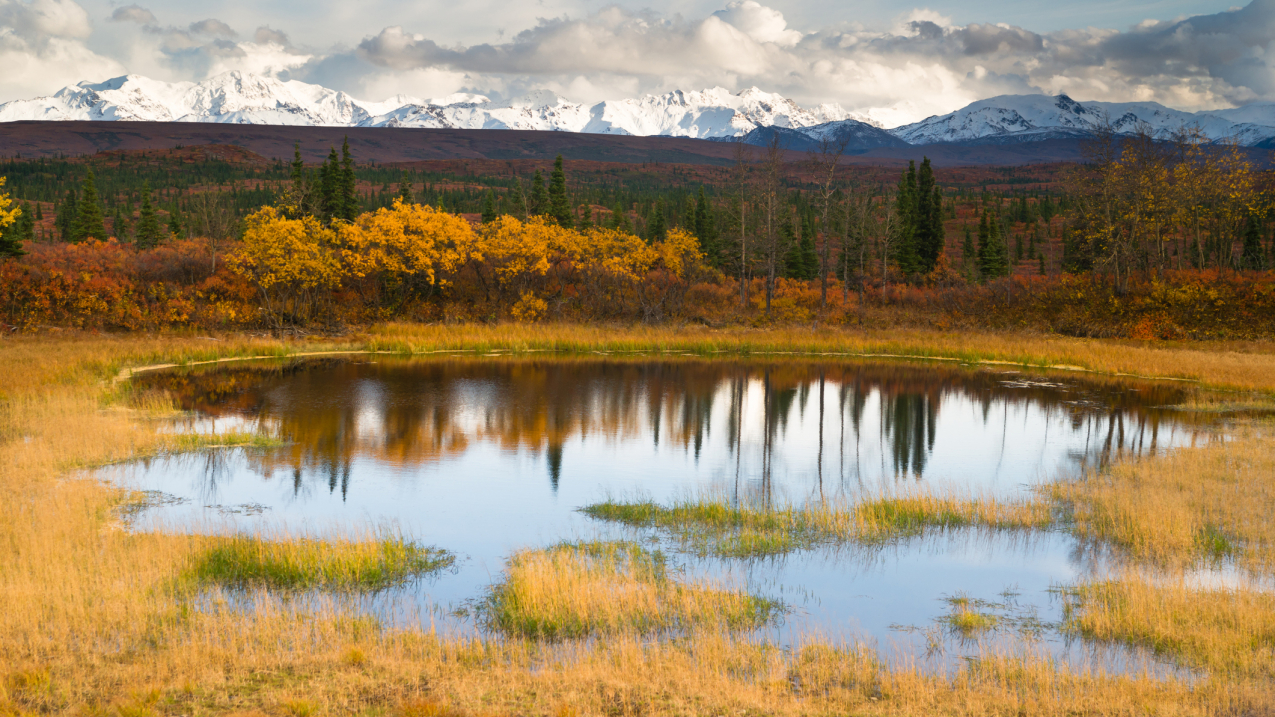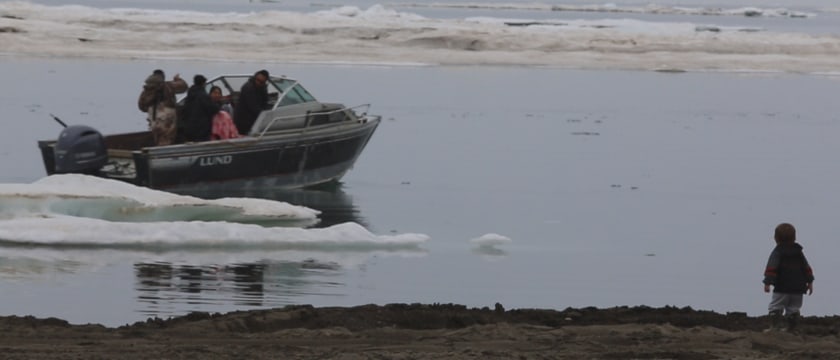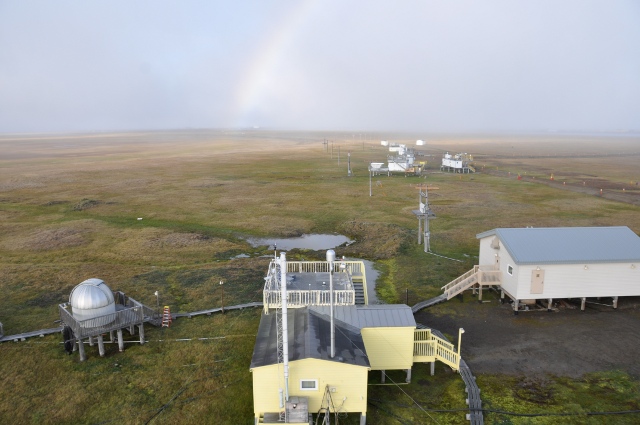News

July 24, 2023
50th anniversary of CO2 measurements at NOAA’s Barrow Observatory
July 24, 2023 marked the 50th anniversary of continuous measurements of CO2 in the atmosphere at the Barrow, Alaska Atmospheric Baseline Observatory.August 5, 2022
NOAA dedicates new Arctic observatory in Utqiaġvik
NOAA's Global Monitoring Laboratory (GML) held the grand opening ceremony for the Barrow Atmospheric Baseline Observatory (BRW) building in Utqiaġvik, Alaska, on Friday, August 5th, 2022.May 2, 2022
Surface ozone depletion events are taking place in Utqiaġvik, Alaska
Springtime (March-May) in the arctic is the prime time for surface ozone depletion events. Since March, several depletion events have been captured by surface ozone measurements at NOAA Barrow Atmospheric Research Observatory near Utqiaġvik, Alaska.January 28, 2022
The new GML Barrow Observatory facility is officially LEED Silver
The new building for the NOAA Barrow Atmospheric Baseline Observatory was officially certified as LEED Silver by the U.S. Green Building Council (USGBC).November 17, 2021
The Barrow Atmospheric Baseline Observatory revitalization project is coming to an end
Demolition of the original laboratory building at GML’s Barrow Atmospheric Baseline Observatory began on October 15, ending its almost 50 years of service since 1972. The demolition of the original laboratory building is the last part of the Barrow Atmospheric Baseline Observatory revitalization project.November 16, 2021
A Window on the World
For nearly 50 years, NOAA’s Barrow Atmospheric Baseline Observatory has provided a window on the world, producing a record of changes at the U.S.'s northernmost tip that have a profound global reach.September 29, 2021
An Early End to the 2021 Snow-Free Season in the Arctic
On September 19, 2021, the daily mean surface albedo at GML Barrow Atmospheric Baseline Observatory reached an albedo value greater than 0.6, indicating the end of the snow-free season in Utqiaġvik, Alaska.June 16, 2021
2021 snow-free season started on June 14 at GML Barrow Observatory
On June 14, 2021, the daily mean surface albedo at Global Monitoring Laboratory (GML) Barrow Atmospheric Baseline Observatory dropped below 0.3, indicating the start of the snow-free season. The snowmelt day ranked 6th latest of the latest 24 years and 44th latest since 1926.June 12, 2017
As Alaska's North Slope warms, greenhouse gases have nowhere to go but up
The amount of carbon dioxide (CO2) being released from tundra in the northern region of Alaska during early winter has increased 70 percent since 1975, according to a new regional climate paper by scientists participating in a research project funded by NOAA and NASA.February 17, 2017
Unprecedented Arctic weather has scientists on edge
As station chief at NOAA’s Point Barrow, Alaska, observatory, Bryan Thomas works close to the edge of the Arctic Ocean. What he saw from his office in early February, looking north toward the horizon, was troubling.September 17, 2015
NBC News video on the warming arctic and Barrow, Alaska
NBC News aired a news story about the affect that the warming arctic has on the people of Barrow, Alaska. Included in the video is an interview with the Barrow NOAA observatory station chief Marty Martinsen. See the video here.July 24, 2013
NOAA's Barrow, Alaska, Observatory marks 40 years of continuously monitoring carbon pollution in the Arctic
40 years ago, on July 24, 1973, NOAA’s atmospheric observatory in Barrow, Alaska—the U.S.’ northernmost city, located at the tip of the North Slope—began measurements of carbon dioxide pollution with a continuous analyzer, providing one of the world’s most important records of this potent heat-trapping gas.

